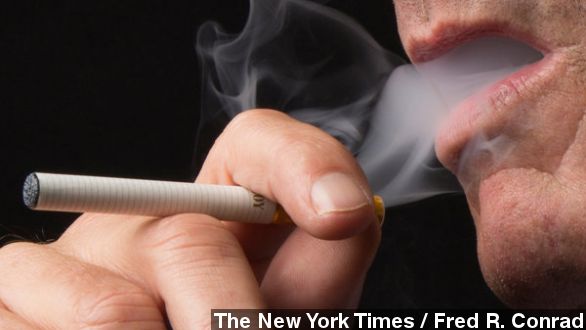A lot of smokers are tossing out the patch and instead turning to electronic cigarettes to help them kick the habit.
"After two and a half weeks of using them, the smell of cigarettes actually bothers me now. And I used to love it." (Via CTV)
But e-cigarettes may not actually help you quit. Researchers tracked nearly 1,000 people over a year, and found only 10 percent of e-cig users quit smoking over that time.
"They showed no change in the number of traditional cigarettes they smoked each day." (Via KXXV)
"E-cigarettes turn a liquid solution into a vapor, but some still contain nicotine. ... But doctors say e-cigarettes are vastly less harmful than tobacco." (Via WHP-TV)
So the e-cigarettes are less harmful, but don't necessarily help you say no to tobacco for good.
According to the research from the University of California, San Francisco, not only did people continue to smoke, but also found adolescents were more likely to pick up a real cigarette if they tried an e-cigarette.
"The study of nearly 40,000 youth around the country also found that e-cigarette use among middle and high school students doubled between 2011 and 2012, from 3.1 percent to 6.5 percent."
The study's lead researcher said manufacturers of e-cigarettes, which are unregulated by the FDA, used "wild west marketing."
Take ads like this that try to promote just how awesome e-cigs are.
And e-cigarettes are even garnering stars in commercials, like this one with Jenny McCarthy, that basically says you can take back your freedom and not have smelly hair and yellow teeth. (Via blu eCigs)
A lead researcher at the University of California, San Francisco, wants to ban ads that suggest e-cigarettes are good for quitting smoking, especially until there is scientific evidence to prove it.


